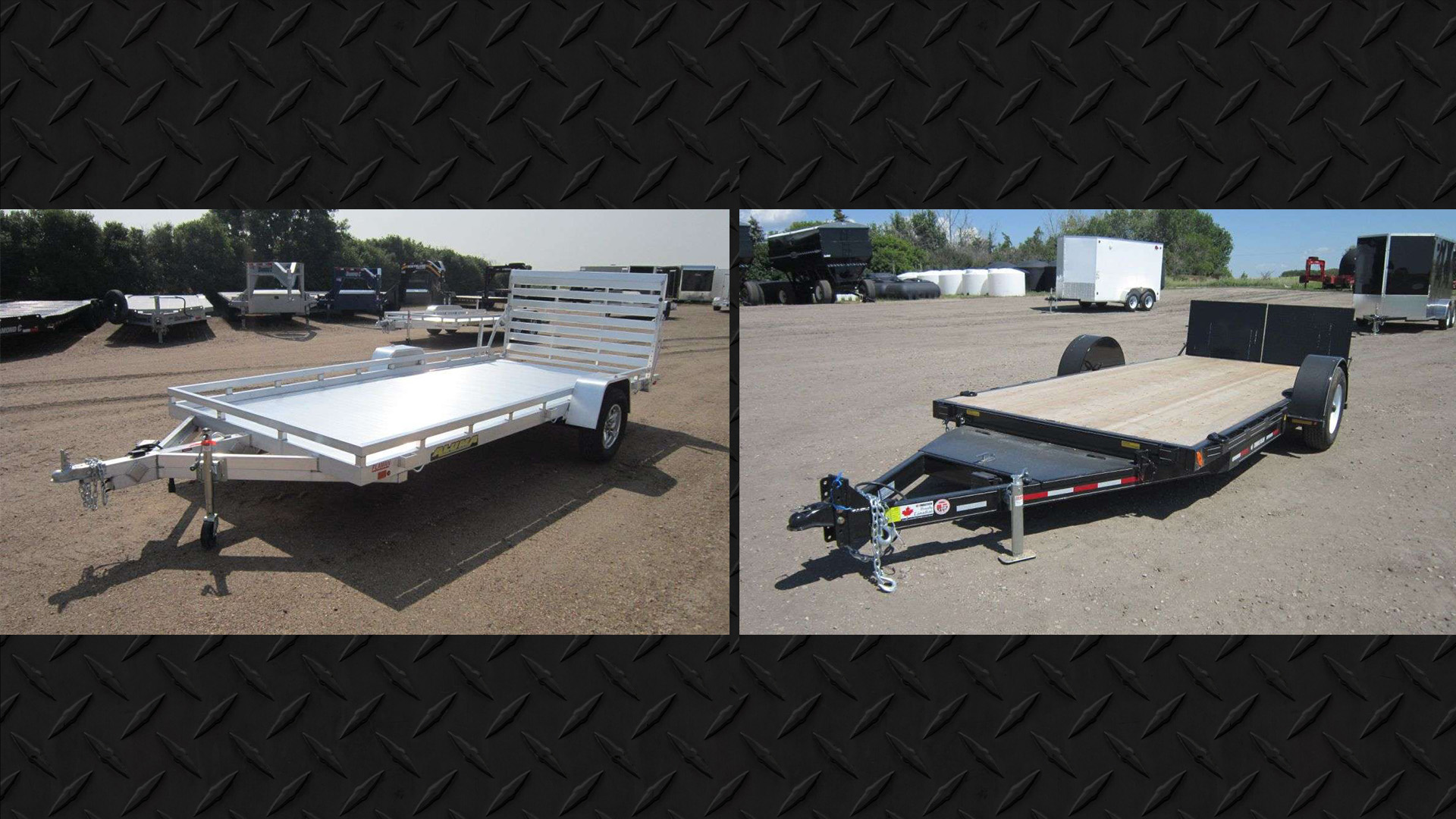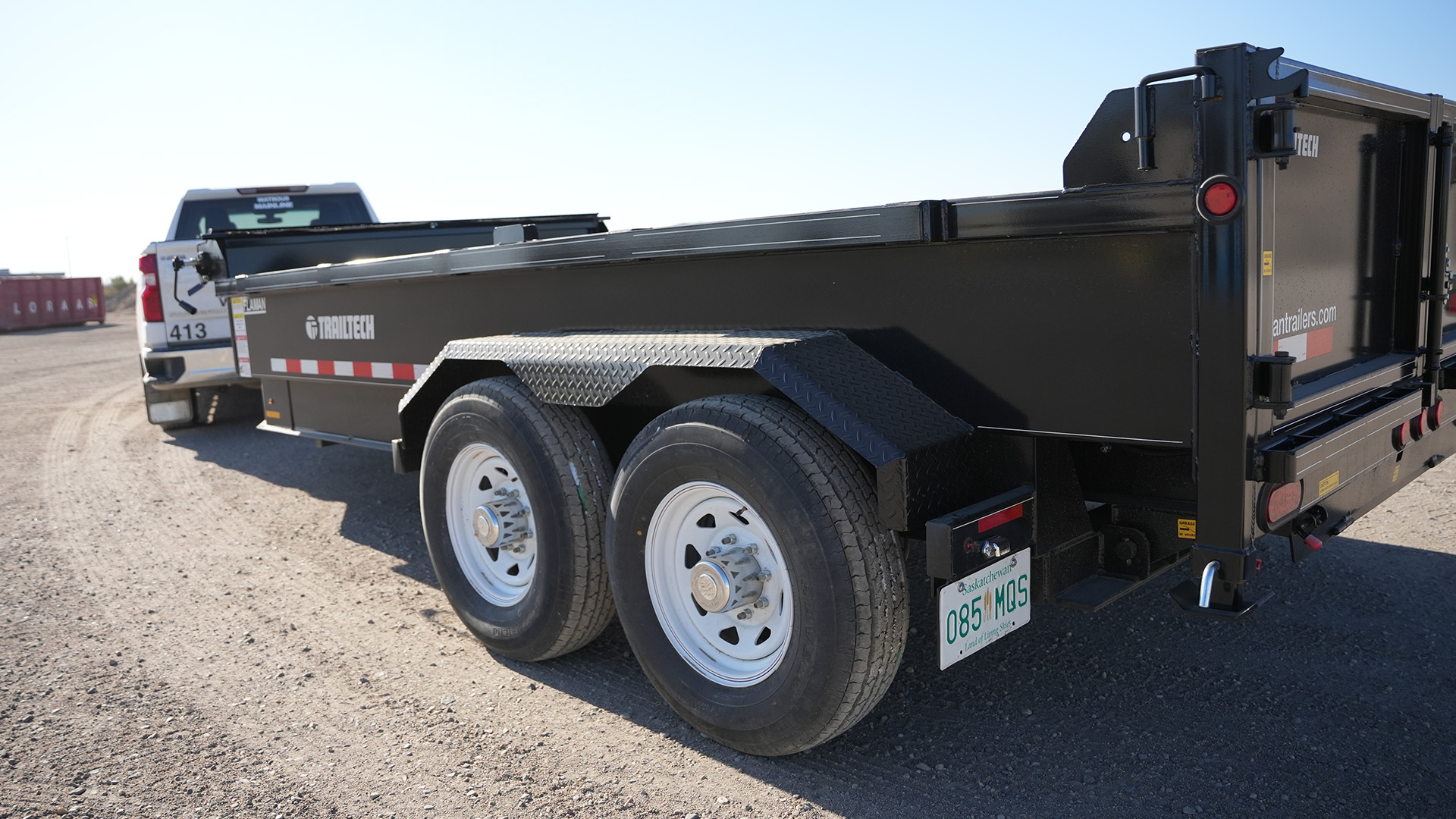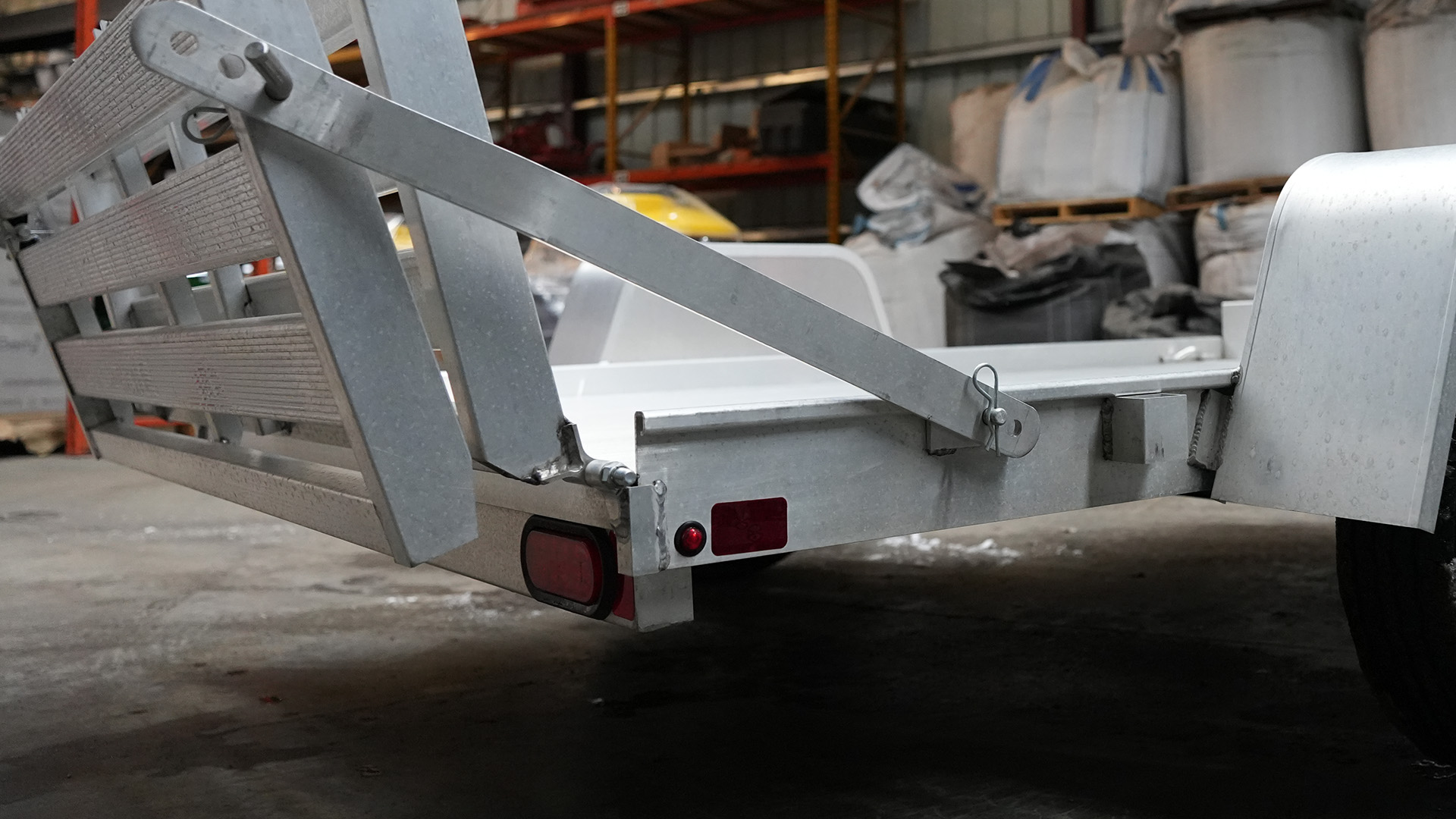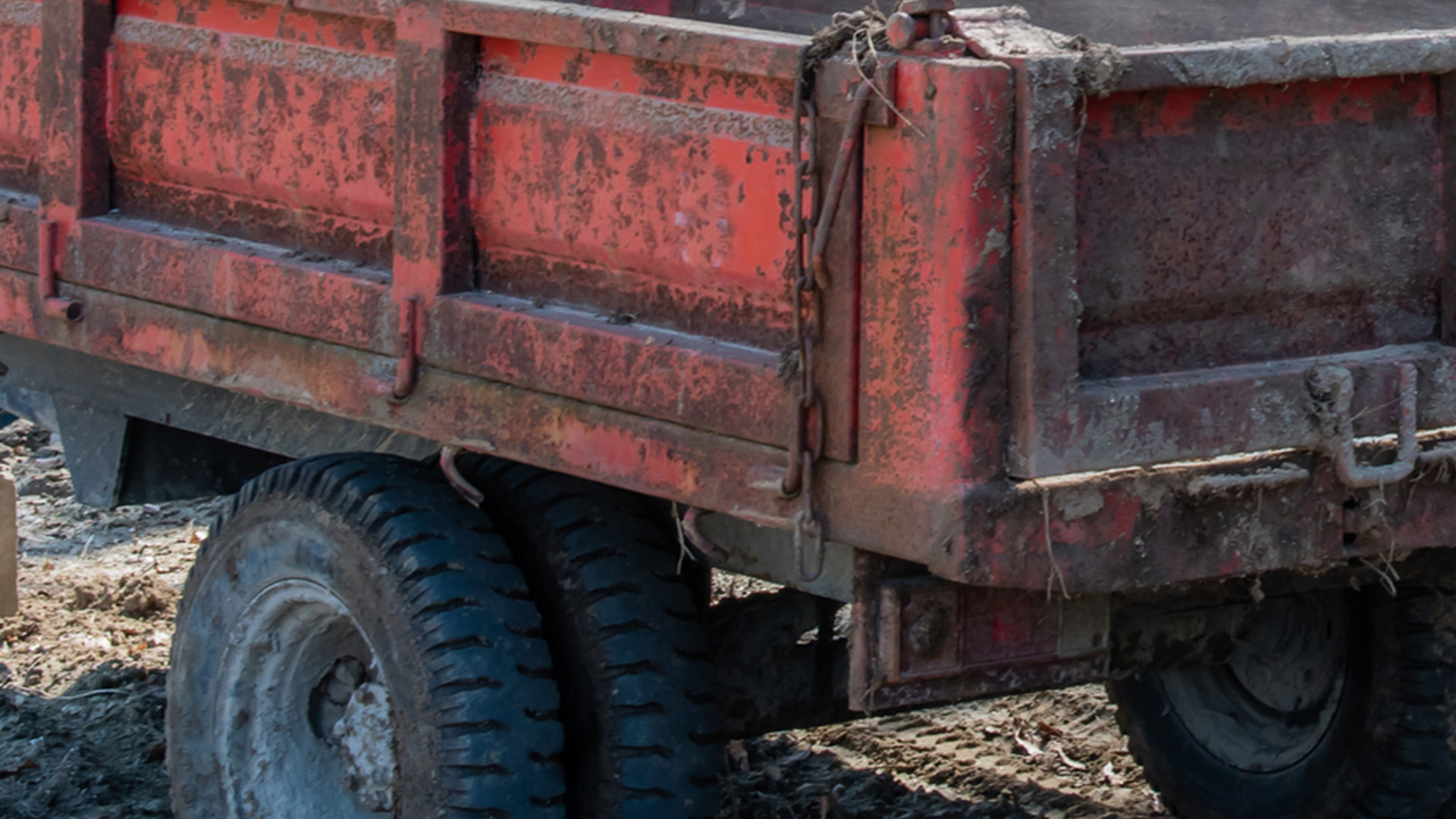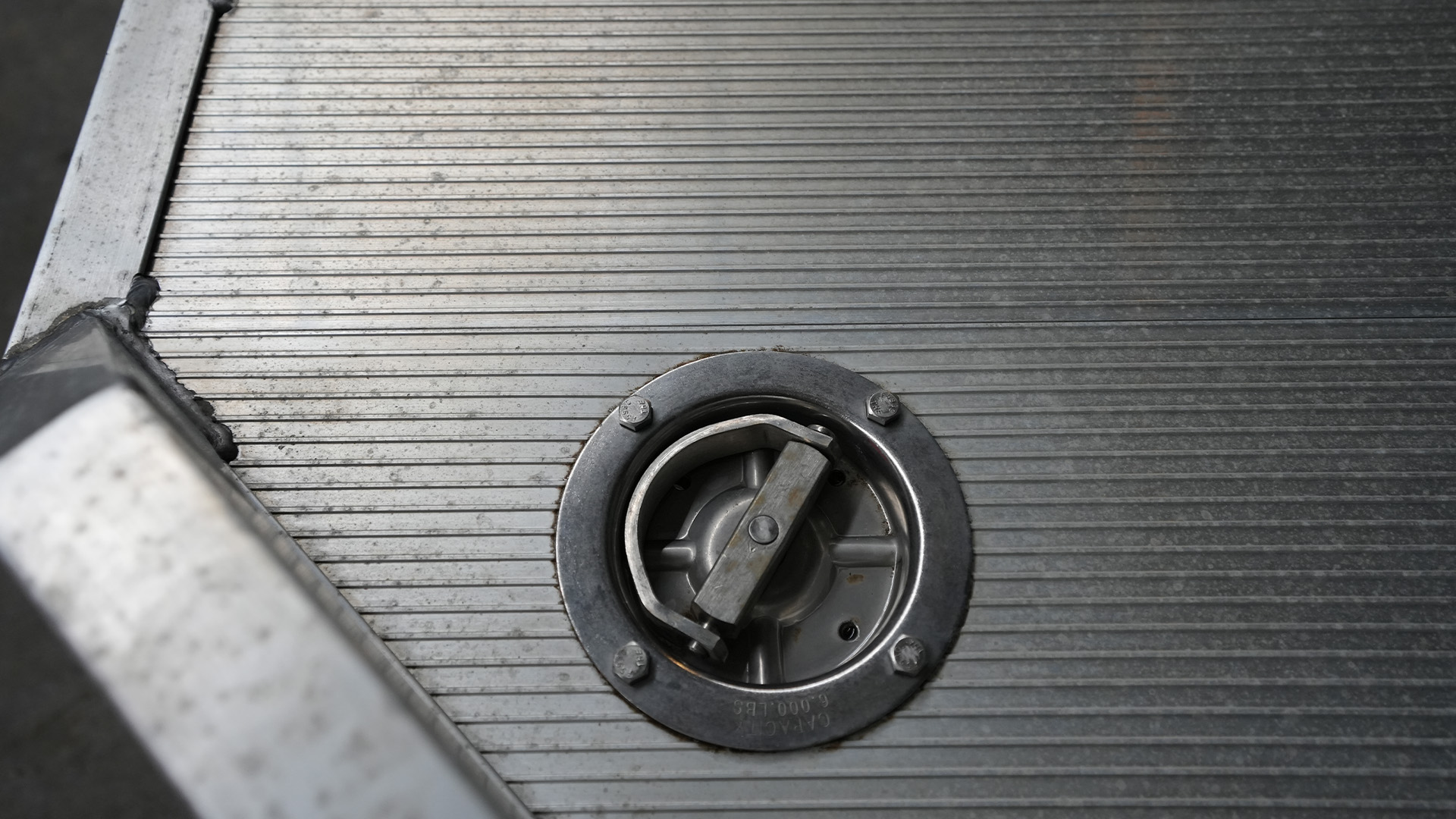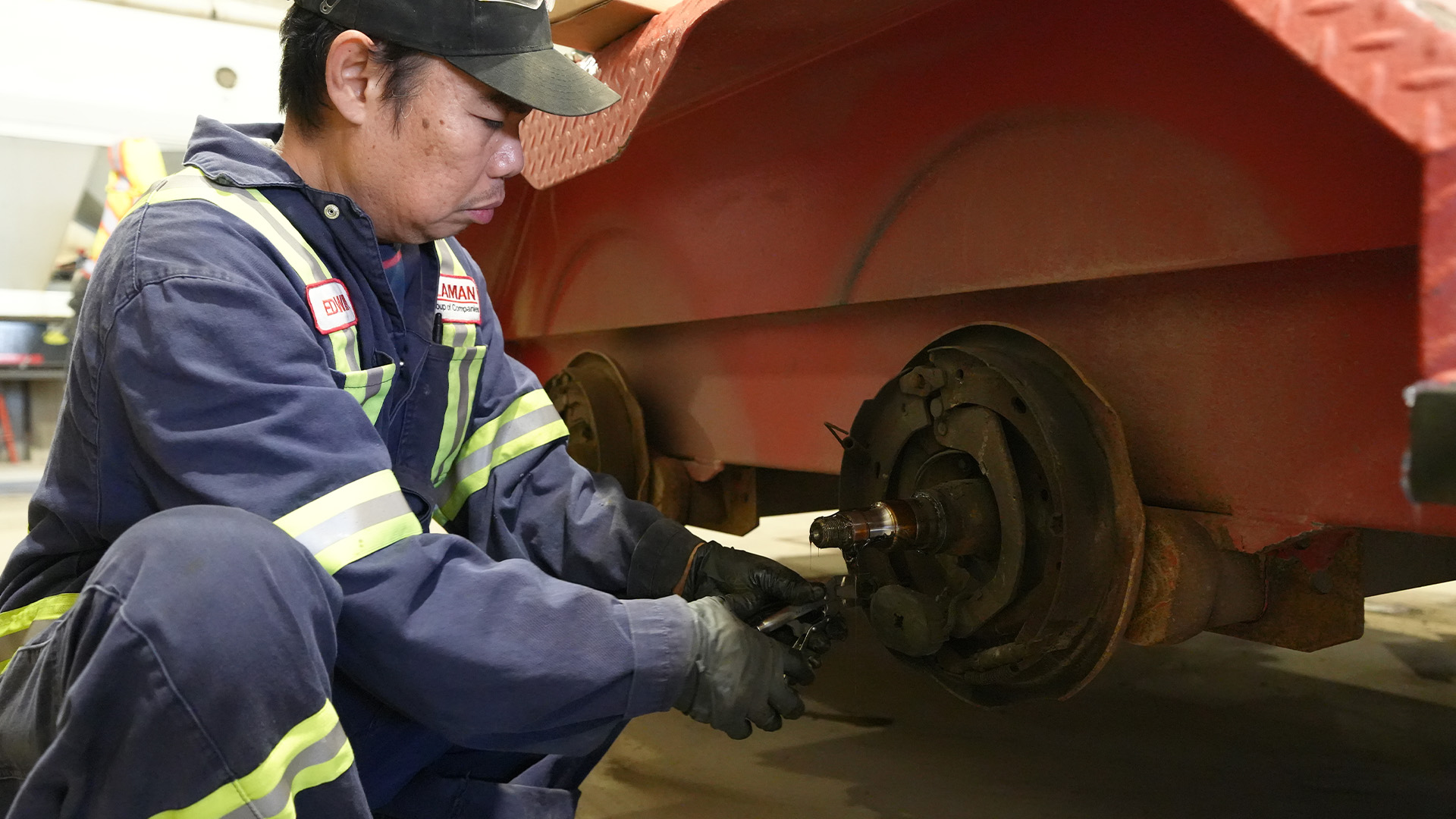Which are better, steel-frame trailers or aluminum-frame trailers?
The debate started in the 1970s, when aluminum trailers entered a market entirely owned by steel. Half a decade later, neither option has made the other obsolete. That’s because there is no best trailer choice for everyone, but there is a best trailer option for you.
Flaman Trailers wants you to find your ideal trailer based on what you haul, the roads you travel, and how much you’ll use it. Here’s our head-to-head comparison. We promise to be impartial. After all, we do sell both.
HAULING CAPACITY
There are three hauling capacity measures to understand – trailer weight, maximum cargo capacity, and GVWR (Gross Vehicle Weight Rating). The GVWR is a sum of the first two measures, which you can check against your tow vehicle’s GVWR to eliminate any risk of overexerting it.
GVWR important to know, especially if you’re hauling heavy farm or industrial equipment. Once you get into these heavier hauls, steel is the only way to go. For instance, the steel-frame Behnke Step Deck Air Ramp Equipment Trailer has a GVWR of 90,000 lbs. Meanwhile, heavier aluminum trailers like the ATC 8.5'X24' Enclosed Car Hauler and the Aluma Heavy Tilt Utility Trailer have GVWRs of 11,400 lbs. and 9,990 lbs. respectively.
Because steel-frame trailers can support more weight per square foot, cargo can be stacked higher than it can on an aluminum frame, which is why enclosed steel trailers can be built taller.
However, aluminum-frame trailers have a superior weight-to-cargo ratio. Being 10-15% lighter than similar-sized steel-frame trailers, they can carry more cargo within your GVWR limit. Aluminum trailers can easily handle that extra weight for one good reason ...
CONSTRUCTION
Strength and Flexibility
There’s no doubt steel is the stronger, more solid of the two materials. But that doesn’t mean aluminum should be equated with crinkly foil wrap and easily crushed beer cans. The aluminum used in trailer frames isn’t made to crumple. It’s made to flex, giving it strength that far exceeds many expectations.
Aluminum trailers aren’t made from pure aluminum, but rather a high-grade alloy blending 95% aluminum with stronger metals like titanium, copper, zinc and chromium. That alloy is further strengthened by an engineered extrusion process. Heated until it becomes malleable, the alloy is pushed like toothpaste through specially cut dyes. It emerges in specifically shaped lengths, which are cooled, cut, and processed to become lightweight trailer parts.
Not only are these parts lightweight, but their strength is concentrated where it’s needed, with three times the flexibility of steel. That gives the material a judo-like ability to redirect whatever force comes at it. If it does bend or get dented, the damage can easily be worked out. Some damage can even work itself out.
Conversely, steel is known for its higher modulus of elasticity - the measure of how much weight or force it can take before it starts to bend. It absorbs its blows like a prize fighter who won’t take a backward step, and it can eventually pay the same toll. Being more rigid and prone to cracking and brittleness over time. Although it can carry heavier cargo, steel fatigues at lower levels than aluminum. And if it bends, it stays bent until it’s mechanically straightened.
Rust and Corrosion Resistance
Because steel alloys contain iron (along with other metals and elements like carbon, chromium, manganese, tungsten, and vanadium), they’re naturally vulnerable to oxidation. That’s most apparent in northern climates like our own, where moisture, snow, and road salt accelerate the process. So, manufacturers coat steel frames with layers of zinc and paint. However, flying gravel or stress bending can compromise those protective layers, allowing rust and corrosion to move in.
Is aluminum the answer?
Yes and no. Aluminum itself doesn’t rust, but the other metals in its alloy can. So, composing alloy blends that give you extra strength without rust is an exacting science. Aluminum trailer manufacturers have invested heavily in that science, and they’ve set high standards for rust-resistance that hold up even in winters like ours.
However, you still need to look out for other forms of corrosion. More on that below.
Rust-proof steel?
Some trailer parts can be made from rust-proof stainless steel, but building an entire frame from it is costly. Stainless steel is difficult to cut and form, and its denser composition takes up more of your recommended GVWR weight. So, you’d need to pay even more for a vehicle powerful enough to pull it and burn more gas or diesel in the process.
COSTS
Purchase
Extrusion may do wonders, but it’s an expensive process. So many haulers opt for steel-frame trailers. They save money on the purchase and can protect their investment with proper maintenance practices – most of them common sense.
Maintenance and Repairs
Spraying your steel-frame undercarriage with a hose or pressure washer can remove dirt, sand, salt or other road debris that can cause rust or corrosion. Then inspect your trailer for cracks, frame dents, loose screws and bolts, or any sign of the rust or corrosion that can creep into those areas. If you don’t already have a protective layer, consider applying a galvanized coating or rust inhibitor. While you’re looking, don’t forget to lubricate all your moving parts. It’s all easier and more effective if your trailer’s stored someplace dry between hauling trips.
Steel trailers usually come with wooden decks, so you’ll need to check for signs of rot, as well. But the main issue is rust. If it gets out of hand, you may have to go to the considerable trouble and expense of stripping your frame’s zinc protective coating layer then applying a new one, as well as a new coat of paint.
Thanks to aluminum trailers’ rust-resistant composition, caring for them is generally a less laborious experience. For instance, you can wash an aluminum deck with a hose and leave it dry. But don’t forget there are other forms of corrosion that could eventually leave your aluminum looking yellow and dingey. Some maintenance procedures for controlling that work better than others. You can read more about them here.
Longevity
Aluminum’s rust-resistant qualities give it a definite edge when it comes to longevity. Manufacturers of aluminum trailers tout their long-lasting like-new appearance, their ability to retain 80% of their value over time, and their generally longer warranties, including lifetime on some models.
On top of all the rust resistance, comparatively easy maintenance, and easily repairable damages, aluminum is ecological, as well. The Aluminum Association touts this ponderable statistic: “Nearly 75% of all aluminum ever produced is still in use today.”
That point made, there is still plenty of long-term love for steel-frame trailers. Online forums have received stories of these units soldiering on over heavily-salted roads for decades. One respondent to a 2011 forum said steel-frame trailers on his farm dated back to the 1950s and were still operational.
Of course, there are always plenty of partisan opinions. Knocks on aluminum trailers include broken welds and other structural failures. An aluminum-frame proponent vowed never to buy a steel frame trailer again unless he could find one that was, “dirt cheap.”
The Beauty of Choice
No doubt, each comment was based on real user experience, which is subject to several variables like quality of manufacturing and how much care was given to the trailer in question. Steel is strong and plentiful. Aluminum is light and rust-resistant. Even dedicated steel or aluminum-frame manufacturers will concede the other metal’s qualities. That’s why you can find steel axles under aluminum trailers and aluminum roofs on top of steel trailers.
So, the steel vs. aluminum debate joins a host of similar arguments: Coke vs. Pepsi, Ford vs. Chevy, PC vs. Apple, and on and on. It always starts with finding something you love, taking care of it, and hitting the road with it every chance you get, as far as the road will take it.
Find the Steel or Aluminum Trailer for You at Flaman Trailers.
With our network of ten dealerships across Alberta, Saskatchewan, and Manitoba, Flaman Trailers is Western Canada’s largest trailer dealer. Whether you’re in the market for a steel or aluminum trailer, or haven’t decided yet, our trailer experts can help you find the model that suits your needs and budget.
Our buying power and working relationships with leading manufacturers across North America assure you a wide selection of flat deck, enclosed, utility, ag transport, livestock and dump trailers to choose from. We back them up with the trailer repair, maintenance, inspection, and customization of our certified service department and parts professionals.
Looking for a trailer for a short-term job? Contact your nearest Flaman Rentals location today.

 Enclosed Trailers
Enclosed Trailers
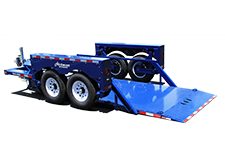 Flatdeck Trailers
Flatdeck Trailers
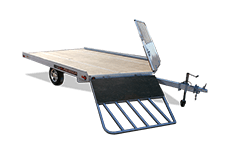 Utility Trailers
Utility Trailers
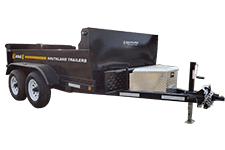 Dump Trailers
Dump Trailers
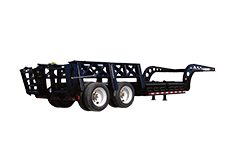 Ag Transports
Ag Transports
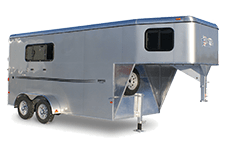 Horse & Stock Trailers
Horse & Stock Trailers
